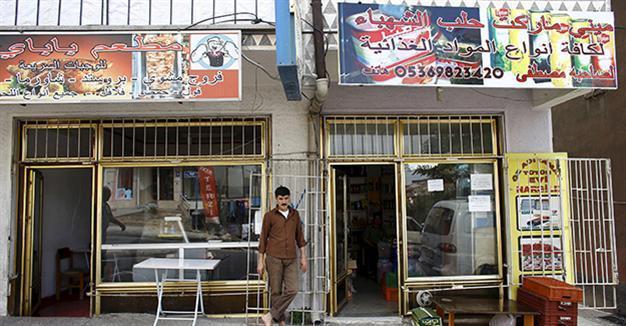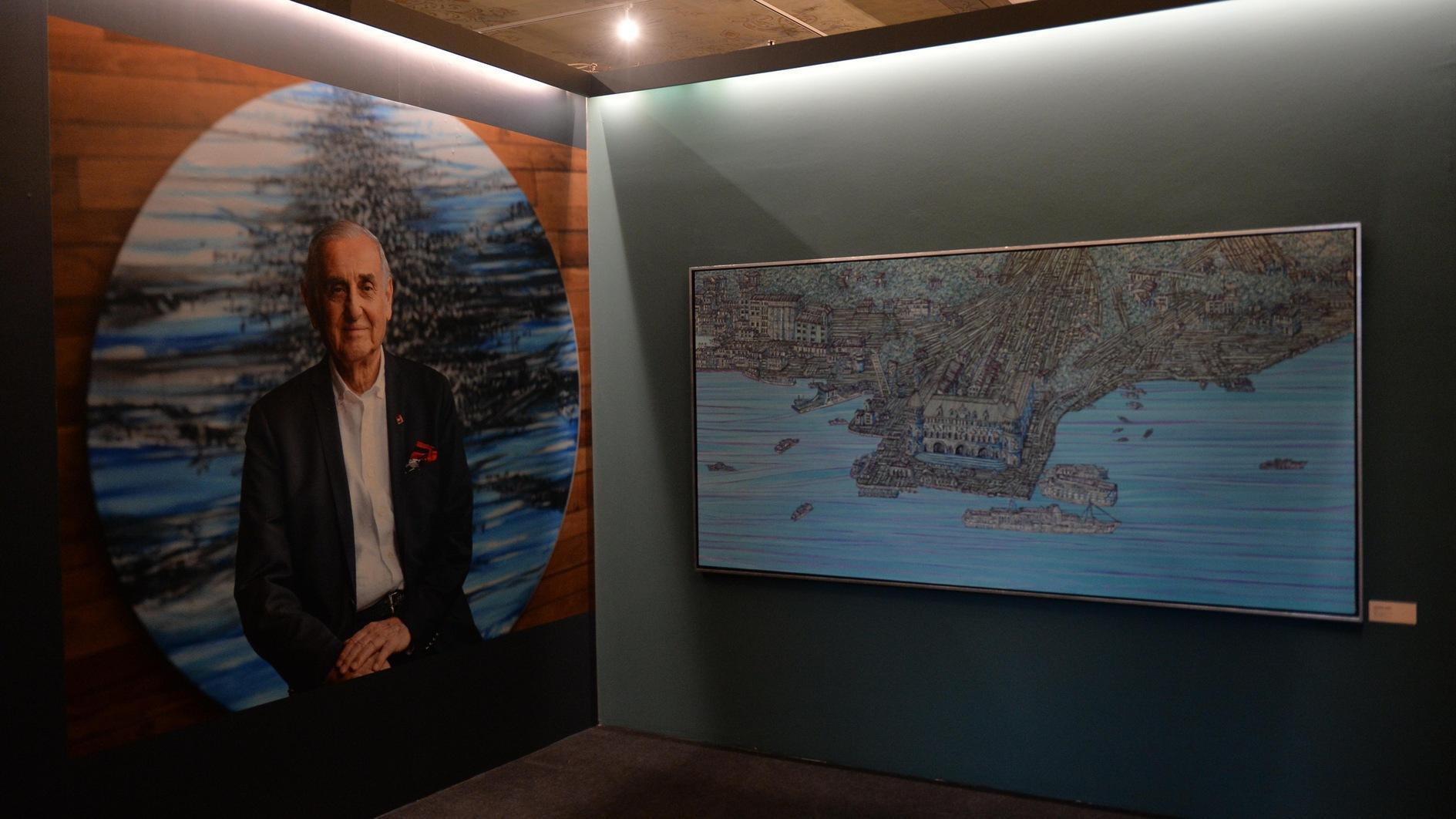Syrians show refugees’ economic potential in Turkey’s borderlands
GAZİANTEP - Reuters

A Syrian man, who had fled the war in his homeland, stands outside the shops run by Syrians in a low-income neighborhood in Ankara, Turkey, September 29, 2015. REUTERS Photo
Ankara has spent more than $8.5 billion on feeding and housing Syrian refugees since the start of the war, but has yet to introduce a policy to allow them to work legally.Echoing concerns voiced in other countries about the flow of refugees, lower-income Turks fear that Syrians, including the estimated 250,000 now working illegally in Turkey, will undercut them and take their jobs. But data suggests Syrians may be a boost for the Turkish economy.
According to TOBB, an umbrella body for local chambers of commerce, more than 1,000 companies were established in Turkey with at least one Syrian partner in the first seven months of 2015, compared with 30 in 2010, before the start of the war.
Although there is no estimate yet of the increase in output from these firms, economists say they have boosted trade with Syria in parts of Turkey where instability and violence in border areas have dented trade with neighbors.
“There has been a big jump in the numbers of businesses founded by Syrians probably because they are finally realizing they are likely to remain in Turkey for many more years,” said Esra Özpınar, a researcher from economic think tank TEPAV.
In Gaziantep, new buildings have sprung up beside the city’s medieval fortress and old market thanks to modern investments and economic incentives offered by the government which have helped it become an economic hub and the most industrialized city in Turkey’s south.
Sitting in the bare office above his factory where thousands of baby rattles and plastic bottles are cranked out every hour, Saad Chouihna believes that if you can make it in Turkey, you can make it anywhere.
“The Turkish market is the hardest,” said the 28-year-old Syrian from the city of Aleppo, bemoaning the tangled bureaucracy, cut-throat competition and a business culture that depends on long-term relationships.
But armed with a knowledge of Turkish and the local culture, Chouihna is finding his way.
He has opened a branch of his family’s plastics business in the southeastern province of Gaziantep, where the many Syrian restaurants and Arabic signs in some districts bear witness to the proximity of the border and the growing Syrian population.
His firm is one of nearly 2,000 set up by Syrians in Turkey in the almost five years since their homeland descended into civil war. A quarter of a million people have been killed since then and millions more displaced, with Turkey now home to 2.2 million Syrians, the world’s largest refugee population.
Chouihna exports to Egypt, Lebanon, Romania, Tunisia and Yemen and does some trade in Turkey. He also sells his products in Syria, helping Turkey’s exports to its neighbor get back close to their pre-war levels.
Turkey’s exports to Syria on the rise
Turkish exports to Syria dipped in 2011 and 2012, but have recovered significantly. In the first 10 months of 2015, Turkey exported $1.3 billion in goods and services there, according to the Turkish Statistical Institute (TÜİK), compared to less than half a billion in 2012.
TEPAV research suggests the rising number of Syrian firms in border provinces such as Kilis, Mardin and Hatay has helped the recovery in exports. But their composition has changed, reflecting the needs of a war economy, with food, generators and pick-up trucks eclipsing building materials and cars.
Economist Harun Öztürkler of the Centre For Middle Eastern Strategic Studies in Ankara said these businesses could, in the long term, be crucial to the Turkish economy.
“The most important contribution will be their network in the Arab world because the owners of these firms were merchants in Syria,” he said. “Finding new markets for Turkey is going to be the most important.”
But there is animosity in Gaziantep among some businessmen who see firms like Chouihna’s as a threat.
“We know there are many unregistered firms and they cause unfair competition,” said the chamber’s communications chief, Şenay Çopur.
“The advantage is they [Syrian firms] are serving generally their own citizens and create employment opportunities,” she said, adding that efforts were under way to bring such companies into the tax system.
Chouihna said the authorities turn a blind eye to his Syrian staff since he also employs some Turks, but he would rather they were officially documented.
Another Syrian living in Gaziantep, Abu Tareq, said he had found investors for his plan to start a company producing $1 million worth a year of refrigerators for restaurants, food stores and factories.
He plans to base his firm in the same industrial district as Chouihna’s and intends to hire 14 people, the majority of whom will be Syrian, he said.
After working in the same business in Syria, he saw an opportunity in the Turkish market.
“There are business options here for Syrians and I realized I will be here for a long time,” he said.
















